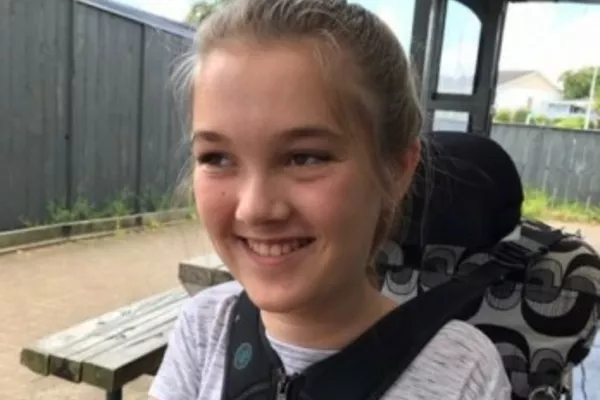Natalie's story
18 Jul 2019
Natalie is my first much adored grandchild. I visited New Zealand from England for a month when she was a month old, and another month at 10 months old. At this stage, she was crawling all over the house, although she was never able to push off with her legs like other children her age. I then emigrated over here when she was 14 months old, by which time she hardly crawled at all. Her parents kept being told that she was just a late developer, but they eventually managed to get seen by a neuromuscular specialist who diagnosed her with Spinal Muscular Atrophy (SMA) type 2 when she was 16 months old. Her parents were devastated to hear that she would never walk and would have a shortened life span, with most type 2s dying between 19 and 50.
She was a very happy and imaginative child whose nighttime dreams always had her out of her wheelchair teaching dancing! She has always had a great ability to make friends and enjoy school. She has had a few stays in Starship Hospital with pneumonia, nearly dying once, and had magnetic rods fitted to her spine, which have since failed.
Natalie does not let her disease influence her life negatively. Apart from her need to be dressed and toileted, she is extremely independent. She has a great sense of humour and is a joy to be around. Being in a wheelchair naturally makes life harder but this doesn't stop her from enjoying it.
She moved with her Mum, Stepfather and two younger siblings to Australia six years, so when they approved Spinraza, she was able to start having injections, which we were really thrilled about. These have improved her motor functions and she will no longer be losing motor neurons.
The family have always intended to return to New Zealand when Natalie turned 18 for her to go to university here. When Spinraza was funded in Australia, we all just assumed that New Zealand would follow suit and were devastated when PHARMAC decided to defer their decision. Unless PHARMAC do the right thing and start funding Spinraza, the family are now in the situation that they either bring Natalie home, risking her deterioration and shortened life span, or they stay in Australia, which they don’t want to do.
Judy, Natalie’s grandmother


